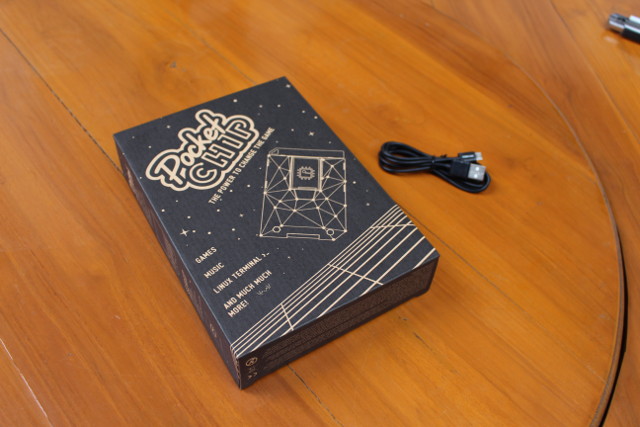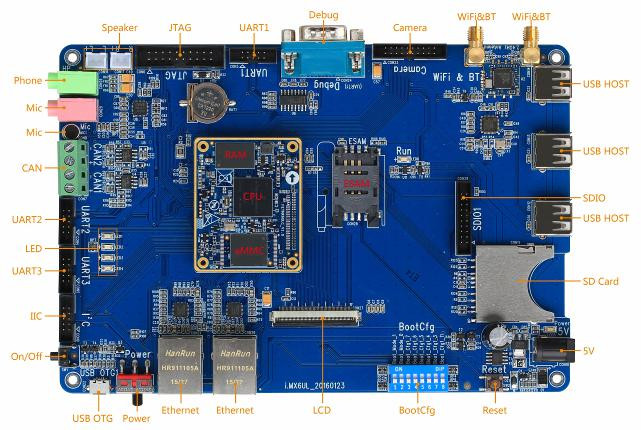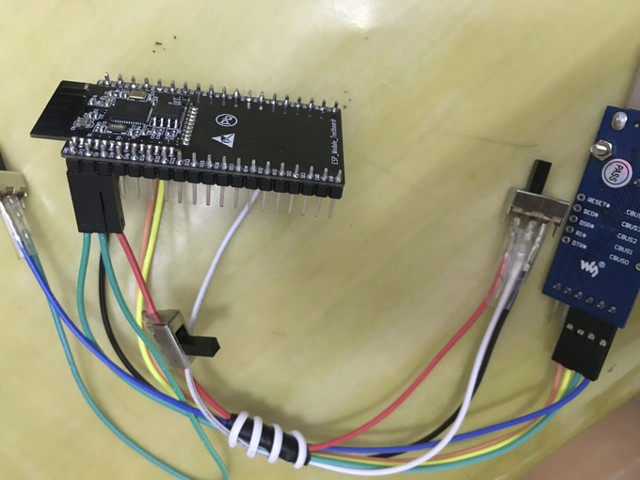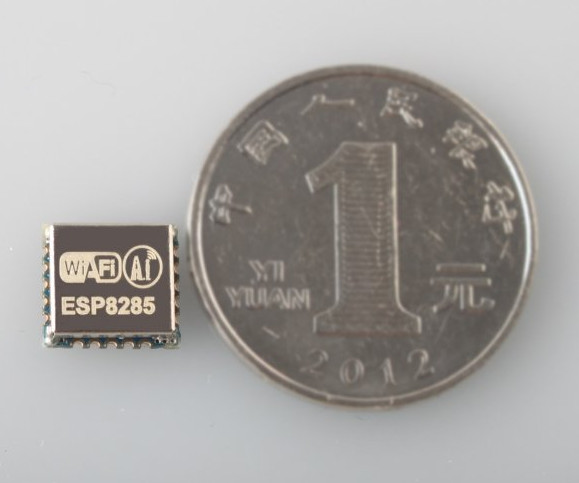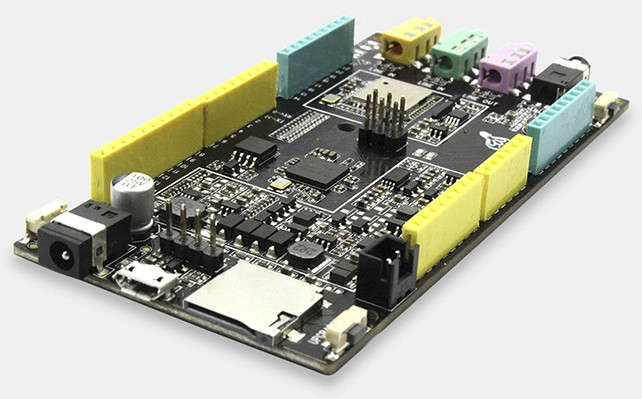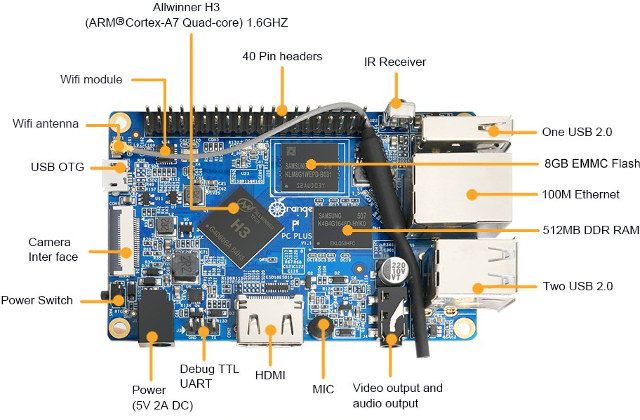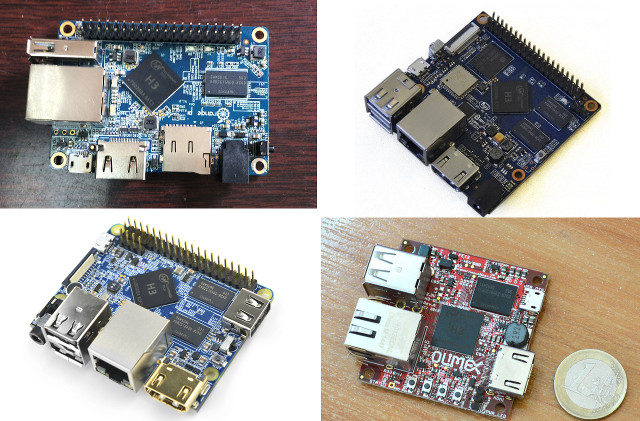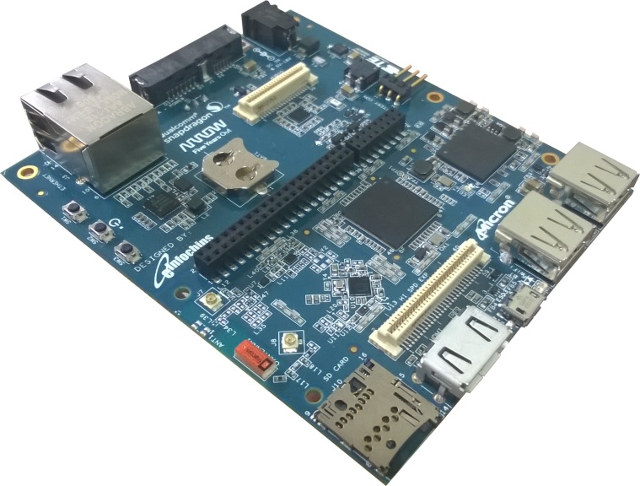It’s not that easy to describe PocketC.H.I.P in a couple of words, as it’s so versatile. It’s a Debian based portable Linux computer with a resistive touchscreen and battery, but also a retro gaming console thanks to PICO-8, as well as a hardware development platform for IoT application with expansion header providing access to I/Os including GPIOs, I2C, SPI, UART…, and WiFi and Bluetooth connectivity. Furthermore you can easily dismantle the device, in order to use the CHIP board, based on Allwinner R8 Cortex A8 processor, for a different project. So when Next Thing asked me if I was interested in reviewing Pocket CHIP, I was pretty excited, but when I received it, I scratched my head as there are so many ways to review the item, and it works out of the box with the firmware pre-loaded inside the internal flash, so a getting starting guide would have been […]
Forlinx i.MX6UL Linux Single Board Computer Supports ESAM Embedded Security Control Module
Forlinx Embedded has introduced i.MX6UL single board computer (SBC) based on NXP i.MX 6Ultralite Cortex A7 processor with 512 MB RAM, 8GB storage, that includes two Ethernet interface, an LCD interface, a CAN bus, as well as ESAM (Embedded System Access Module) support via either a SIM card like slot, or a 8-pin DIP chip compatible with ISO7816 standard, and typically used in the financial, telecommunications, transportation sectors for authentication and secure data transfer. Forlinx I.MX6UL board specifications: System-on-module: SoC – NXP i.MX 6Ultralite ARM Cortex A7 processor @ up to 528 MHz with 2D graphics GPU System Memory – 512 MB LvDDR3 memory Storage – 8GB eMMC flash (but hardware manual says 1GB eMMC flash, but also mentioned MTFC8GACAAAM-1M WT so it must 8GB after all…) 2x 80-pin board to board connectors with signals for 2x CAN bus, 2x USB device, 2x SDIO, 2x 10/100M Ethernet, 24-bit RGB, 4x […]
Get an Early ESP32 Board by Contributing to Luanode for ESP8266 & ESP32 Project (Crowdfunding)
Development boards and module based on Espressif ESP32 dual core processor with WiFi and Bluetooth LE connectivity are due for Q3 or Q4 2016, but you could get an early sample as early as July if you contribute to Jimmy Wu’s (of wifimcu.com) crowdfunding campaign to develop Luanode (Lua SDK) for ESP8266 and ESP32 processors, as ESP32 boards are part of the rewards. Luanode is a Lua SDK for ESP32 and ESP8266 that supports multi-tasking through FreeRTOS, and includes support for peripherals. The source code and documentation can be already be found on Github, and the main differences against something like NodeMCU appear to be multi-tasking and (for now) ESP32 support. Interestingly the SDK contains a tools called WiFi-Killer uses for Denial of Service (DoS) attacks using ESP8266 or ESP32 modules… One hardware project is called WiFi tank comprised of one T300 Tank Chassis, ESP8266 Development Kit, 720p HD Camera, […]
Espressif ESP8285 is just like ESP8266 but with 1MB built-in Flash, and Designed for Wearables
Espressif announced ESP8285 WiFi SoC was entering production last March. The new processor is based on ESP8266, but the company added 1MB built-in flash to make the solution smaller, and more suitable to wearables such as smartwatches and activity trackers. ESP8285 features a Tensilica L106 32-bit MCU and another ultra-low-power 16-bit RISC core, as well as 802.11 b/g/n/d/e/i/k/r WiFi connectivity. AI Thinker has already produced a tiny module based on the solution, called ESP-8285, and another person has developed an ESP8285 development board sold on Tindie for $24.95, and with some code sample (Arduino sketches) on Github. You’ll also find some more technical information on a Devacron blog post, or inside the datasheet on Espressif website. Via Hackaday Jean-Luc Aufranc (CNXSoft)Jean-Luc started CNX Software in 2010 as a part-time endeavor, before quitting his job as a software engineering manager, and starting to write daily news, and reviews full time later […]
Fireduino Arduino Compatible Board Features Rockchip RKnanoD Dual Core Cortex-M3 MCU (Crowdfunding)
Rockchip RKNanoD dual core Cortex M3 micro-controller was introduced last year for IoT and audio applications, and the Firefly team, known for their FirePrime or Firefly-RK3288 development boards, has designed an Arduino compatible board based on the MCU with lots of audio ports, Arduino headers, and WiFi connectivity. Fireduino specifications: MCU – Rockchip RKnanoD dual core ARM Cortex M3 MCU @ up to 250 MHz (system core) / 500 MHz (calculate core) with respectively 640 KB and 384 KB RAM Storage – 4 or 8MB SPI flash + micro SD slot Audio 24-bit/192 KHz audio codec (built in MCU) with HW accelerator for APE, FLAC, OGG, and MP3 audio decoding 1x 3.5mm analog audio jack 2x 3.5mm LINE In jacks 1x On-board microphone DLNA wireless audio support Connectivity – 802.11 b/g/n WiFi via Ampak AP6181 module Expansion Arduino header with I2C, SPI, ADC, GPIO, PWM, UART LCD interface (Intel 8080 […]
Orange Pi PC Plus Quad Core Development Board with 1GB RAM, 8GB eMMC flash Sells for $20
Most low cost development boards do not include internal storage in order to decrease costs, and instead require their users to flash their preferred operating system on (micro) SD card. This makes it easy to get started, but many micro SD cards often suffer from poor random I/O performance, even for Class 10 or greater card, leading to a poor user experience compared to what you’d get with an eMMC flash. Shenzhen Xunlong has released yet another Allwinner H3 board, namely Orange Pi PC Plus, similar to Orange Pi PC but adding WiFi, and 8GB eMMC flash. Orange Pi PC Plus specifications with main change with Orange Pi PC highlighted in bold: SoC – Allwinner H3 quad core Cortex A7 @ 1.3 GHz with ARM Mali-400MP2 GPU up to 600 MHz System Memory – 1GB DDR3 Storage – 8GB eMMC flash + micro SD card slot Video Output – HDMI […]
Allwinner H3 Boards Comparison Tables with Orange Pi, Banana Pi M2+, NanoPi P1, and H3-OlinuXino-NANO Boards
Allwinner H3 SoC has now found its way into many low cost development boards, including several Orange Pi Boards, Banana Pi M2+, NanoPi M1, and Olimex H3-OlinuXino-NANO, and it might be difficult to choose among the list of boards available, so tkaiser has written a buyer’s guide for boards supported by Armbian, with some of the key differentiating factors, and on my side, I thought it might be a good idea to draw a comparison table between the boards. Since a table with 10 boards would be hard to read, I made two tables: one with boards with 512 MB RAM + Orange Pi PC / PC Plus, and a second table with higher end boards with 1 to 2 GB RAM, and more features. But first let’s talk about Allwinner H3 SoC since it’s common to all boards. It’s a quad core Cortex A7 processor clocked at up to […]
SD 600eval Development Board Compliant with 96Boards CE Extended To Sell for $279
Last month, we found out that Arrows Electronics was working on DragonBoard 600c development board featuring Qualcomm Snapragon 600 processor and based on 96Boards CE Extended version which allows for extra features such as SATA and Ethernet ports. At the time, the complete specifications were not available, and neither pricing. We do now have more details, as the board designed by Elinfochips is (also) called SD 600eval, and is available on back order for $279. SD 600eval specifications: SoC- Qualcomm Snapdragon 600 (APQ8064) quad-core Krait 300 processor @ up to 1.7 GHz with Adreno 320 GPU @ 400MHz supporting OpenGL ES 1.1/2.0, OpenCL 1.1, WebGL 1.0, and DirectX 9.3 System Memory – 2GB PoP LPDDR2 @ 533 MHz Storage – 16GB eMMC Flash + micro SD 3.0 (UHS-1) slot + SATA port Video Output – HDMI up to 1080p Video – 1080p@30fps HD video playback and capture (h.264/AVC) Connectivity – […]


